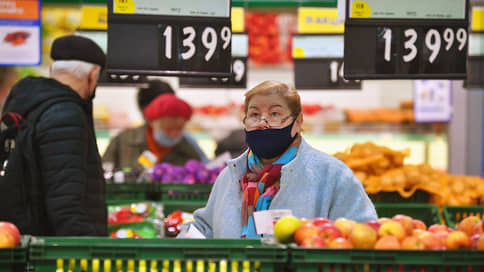Inflation is expected on the winter slope – Kommersant newspaper No. 172 (7373) of 09/19/2022
[ad_1]

Global inflation will peak in the third quarter of this year and then begin to decline, predict analysts surveyed by Focus Economics (a total of 120 economists participated in the survey). A rate hike of around 200 basis points will weigh on economic activity, with many economists now including a slowdown in GDP in the US and the euro area and a slowdown in China in their base case scenarios. The weakening of demand (including as the effect of consumption deferred due to covid is exhausted) will lead to a slowdown in inflation – this is already evident from the dynamics of metal prices. Next year, raw materials will continue to fall in price, analysts expect. Logistical restrictions are also easing – freight costs are now two times lower than at the beginning of the year. An increase in the production of semiconductors leads to a reduction in their deficit in the market. Both trends will only intensify, Focus Economics expects. The grain deal was also a factor in the slowdown in price growth: prices for wheat have fallen by a third since May, and for corn – by 10%.
About 60% of analysts call the main pro-inflationary risk a complete halt in Russian gas supplies to Europe (in early September, Gazprom announced an indefinite halt in Nord Stream pumping, leaving pipelines through Ukraine and Turkey). 9% of analysts named weather conditions as the main risk – a cold winter in Europe could lead to a new increase in energy prices. Other regions, on the contrary, are suffering from drought or floods, which threaten to reduce food supplies and hydroelectric power generation. Another 9% of respondents named wage growth due to lower unemployment in developed countries as a key risk. Additional risks are also associated with the possible decision of OPEC + to cut production (quotas should be reduced by 100,000 bpd in October), while increased sanctions pressure on Russia could lead to higher prices for raw materials.
The main factor in a possible slowdown in inflation, in turn, is considered to be a global recession – 68% of analysts pointed to it. Another 22% indicated that reaching a peace deal between Russia and Ukraine could lead to a sharp decline in wheat prices and an increase in Russian gas supplies to Europe, and 3% noted that reaching a nuclear deal with Iran could reduce oil prices – but OPEC + in this case can reduce its own supplies.
[ad_2]
Source link






